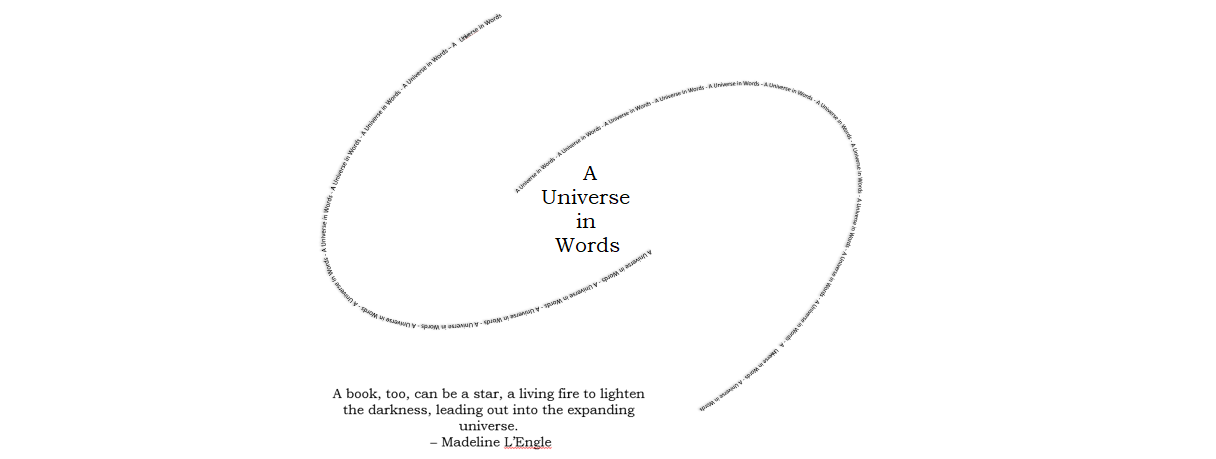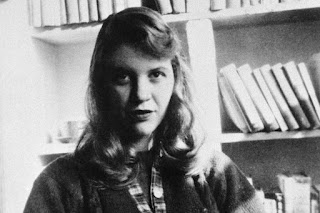'The Heart Asks Pleasure First' by Emily Dickinson
This is one of the few poems by Emily Dickinson that have really stuck with me over the years. It was the kind of poem that just wouldn't let me go. So I thought I would share it and my thoughts with you.
The heart asks pleasure first
And then, excuse from pain-
And then, those little anodynes
That deaden suffering;
And then, to go to sleep;
And then, if it should be
The will of its Inquisitor,
The liberty to die.
It is a relatively short poem, yet it carries a lot of meaning. Take the first line: 'The heart asks pleasure first'. It is immediately clear that Emily feels that passion, pleasure, any kind of emotion come from the heart, not from the head. love is therefore, in her eyes, not a rational thing. It also implies that her heart is subordinate to something else because she 'asks'. She is in no position to demand love, affection or pleasure, she has to ask for it. Perhaps Emily is trying to say that even in love, a woman is subordinate to a man and has to beg for love. On the other hand, she could be making a more general point about lovers. One is always pining for love and affection from the other, who is therefore stronger. This interpretation might be more valid when taking the rest of the poem into account.
What the heart asks for becomes increasingly more disturbing. Emily goes from 'pleasure' to 'pain' to 'suffering'. Whereas she has asked for the first, the second and third are being done to her. Yet she does not ask for the pain to stop, she asks for an 'excuse' or something to 'deaden' her suffering. It seems she cannot or will not be angry about her pain but perhaps sees it as her own fault. That might be logical from the perspective of courtly love, where pain had to be overcome in order to be worthy of your lover. Yet here it seems the pain is leading towards the inevitable end of the relationship. Emily's narrator is being hurt, yet there seems that she is too in love to mind. She would rather be in pain with hr lover, than painless without him.
The 'Inquisitor' mentioned by Emily could be interpreted as being her lover. She has completely and utterly given herself over to him and therefore he is the one who can decide her destiny. An inquisitor was part of the inquisition who were meant to eliminate heresy in the name of the Church. This reveals something about the nature of the relationship. Perhaps she feels she is being punished for loving too much or for not being the way people, especially her lover, expected her to be. The line also seems to take the metaphore of 'giving your heart to someone' a bit to the extreme since he is 'its' Inquisitor, not hers. She has given herself over to him completely and is at his bidding. And yet it is still her wish to die. He does not demand it of her, but she feels that death would be a 'liberty' compared to the prison of pain she has been stuck in after the end of her relationship.
The poem clearly states Emily Dickinson's views on the end of love. She sees it as something unnatural. She emphasizes this by linking love to the 'heart'. The end of love must therefore also be the end of her heart beating, inevitably leading to death. Other poets often express this through imagery of nature dying, to show how it is not in the nature of man to love and then lose love.
In both stanzas, all lines except the fourth have six syllables whereas the fourth and eighth have eight syllables. Because Emile uses free verse (she doesn't use consistent rhyming) this rhythmic structure is crucial to knowing how the poem should be read. There is something about those two lines that is important, namely those 'little anodynes' that sooth her pain and the 'Inquisitor', who both causes her pain but also has the power to release her of it.
What do you think of the poem and the way that Dickinson presents love and especially the end of it? Do you have a different Dickinson poem you like?
As a late addition to this post, I'd like to add the beautiful fourth track from The Piano OST, called 'The Heart Asks Pleasure First'. Alongside this poem, it has been with me for years.




This poem is really nice; and thanks for the interpretation. I'm relatively new to poetry, but I do like Dickinson's They shut me up in Prose.
ReplyDeleteThat's another one of her poems I like as well!! :)
DeleteThanks for commenting!
I'm a huge fan of Dickinson. I see this poem as about the life cycle, from starting out with a desire for pleasures to the suffering of aging, until finally meeting death. The "Inquisitor" might also refer to a being that resides over death, like God, someone who is severe.
ReplyDeleteThe thing I like about Dickinson is her ambiguity. Any number of people can come away with any number of interpretations of her poems. Thanks for sharing!
That's something I love about Dickinson as well, that there is something for everyone! And the Inquisitor as God is a great interpretation, but I was trying to look at it from the perspective of love! Thanks for commenting! :)
DeleteI do enjoy Emily Dickens poems and this one is a nice selection of her love poems. I do not care for her love poems nearly as much as I do for her poems concerning nature. She had a way of seeing nature in a way that gets me to see it differently. I am not a nature lover at heart, and maybe she gives me a little something that I am lacking in that regard.
ReplyDeleteReally useful one, compact yet packed with important points.Thank You very much for the effort to make the hard one looks so simple. Further, you can access this site to read Dickinson’s Attitude Towards Life and Love
ReplyDelete